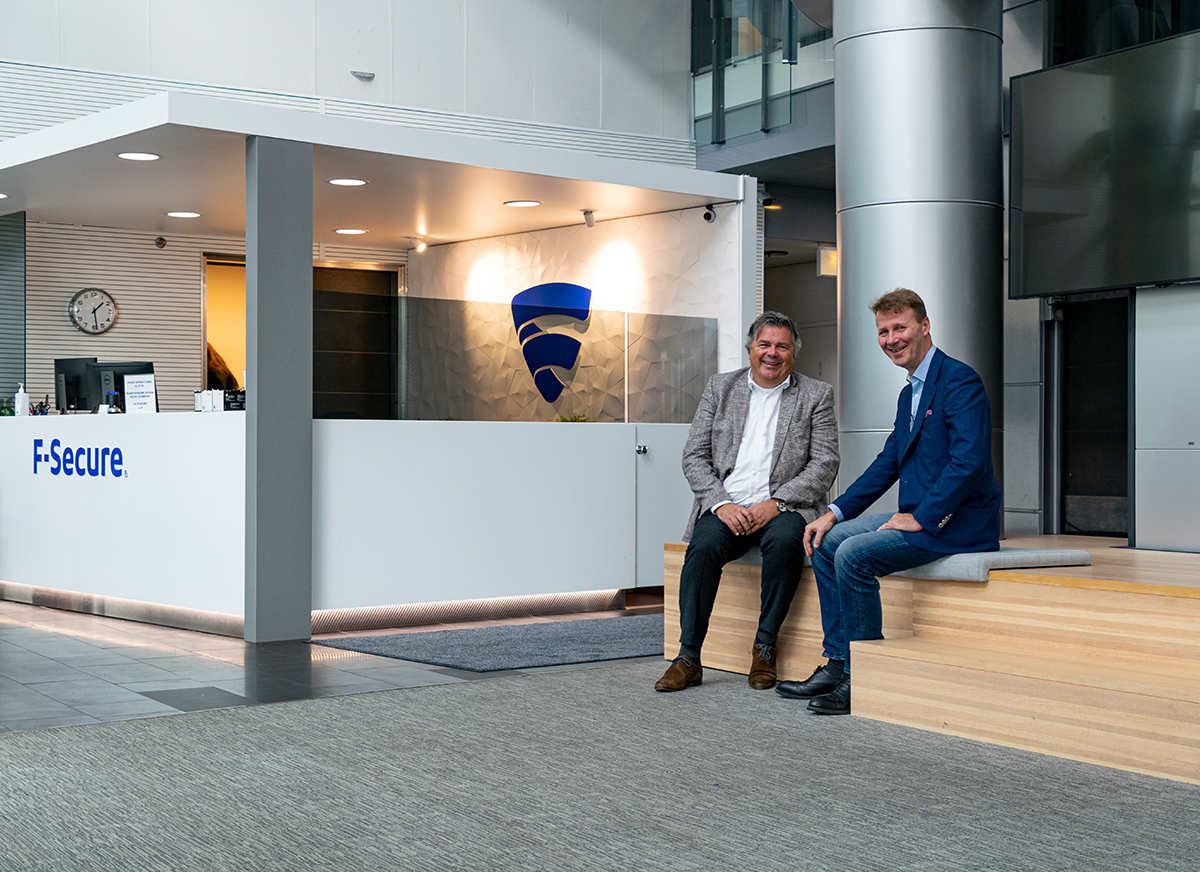Want to read more stories about Sioux Technologies? Download our digital magazine below.
Sioux Source 2022What does it take to be successful in the global and dynamic power play of the tech industry? Who better to ask this question than Risto Siilasmaa. He directed the miracle of Nokia, which went down dramatically in the violence of the smartphone industry but rose again as a global player in network infrastructure. Leon Giesen, CEO of Sioux Technologies Europe, traveled to Finland for a good conversation and recognized himself in Siilasmaa’s story. ‘Be agile. Cherish your people. Those who understand their customers and market are the winners.’
Leon Giesen: ‘I read your book – Transforming Nokia, the power of paranoid optimism to lead through colossal change – with fascination. As a market leader, you describe how you can be knocked off your throne very quickly. At Nokia the focus was on hardware, and the importance of software was underestimated…’
Risto Siilasmaa: ‘Yes and no. A lot went well. We were the inventor of the app store, for example. But all companies have their own DNA, an embedded development approach that you don’t just change. For example, in early Nokia history the company got used to building custom software for every new phone. While that was obviously not effective in a fast-growing market with an ever-increasing turnover rate and more and more models, some aspects of the core development model remained and slowed the company down.’
'It also went very fast on the technology front, more computing power, memory and apps…’
'It was time to develop a decent operating system - Symbian. We wanted to set a standard and do this together with other large parties such as Motorola and Samsung. In principle, that is a good idea from a compatibility perspective, but not if you want to conquer the world. Within a coalition of competitors, no one is in charge. Everything moves slowly and it leads to suboptimal solutions. We sowed the seed for our own downfall, especially since iOS and Android suddenly saw the light of day.’
'But tell me more about Sioux…you also operate in markets with tremendous dynamics and have to go along with that.’
'Our story is one of continuous transformation. Important steps were two acquisitions through which we acquired high-quality competences in mathware and mechatronic engineering. Now we are a service provider that takes on the complete development and construction of very complex systems and machines.’
‘I am an engineer and want to know how everything works. What do you mean with mathware?’
‘Mathematics that takes our software to the next level. For example, we can push the mechanical boundaries in accuracy of movement and very quickly analyse large amounts of data from sensors. This results in highly innovative equipment and applications, for example for the production of chips and batteries, pathology in the operating room, materials research and smart logistics.’
'Software and mathware are changing the world. You must be very close to your customers’ technology.’
‘When you are talking about Sioux, you are talking about customer intimacy. The mutual dependence is great, that is how we move forward together. Know your customers and your market; then you are a winner.’
‘That is also one of the lessons Nokia has learned.’
'Which other lessons?’
‘You have to do it yourself. High risks, high rewards – the winner takes it all; that is the reality in today’s digital world. If you are tied to fixed structure, you are at a disadvantage. Agility and daring to jump in first is very important. Users of your products have the power. Because of the strong network effect, you can quickly lose them in large numbers.'
‘Nokia sold the smartphone business to Microsoft and shifted the focus to the network infrastructure. That was part of the solution.’
‘Above all, we had to change our culture. This is usually not possible without drastically changing your organizational structure.’
‘For Sioux, culture is key. It is fueled by growing together, learning, openness, trust, entrepreneurship, and innovation. We guard this very consciously and invest a lot in this. After all, that is how we help our people, customers and the world move forward.'
‘What do you see as the main challenges for entrepreneurs in the high-tech industry?'
‘Software is leading, a lot of value is being created and redistributed in the cloud. We need to understand the logic behind business models. Why do things work the way they work? Being successful requires making the right choices based on a lot of information.’
‘Data intelligence is key…’
‘Sometimes you cannot predict what data is or will be valuable, so you have to dare to experiment. Study it, learn from it and understand it.’
‘You have since left Nokia and are now spending most of your time investing in startups. You are also founder and chairman of F-Secure.’
‘Cybercrime is one of the biggest threats of our time. The amount of attacks on companies and governments is enormous, as is the damage done. We provide protection and first response. For me, this work is also personal, it feels good.’
‘Even in high-tech nowadays, everything is connected. Our customers are constantly under attack. By integrating security into development processes of systems, you can significantly reduce risks. That is why we are strongly considering investing in cyber security as a new competence as well.’
‘Then you have to attract the best people. They want to be challenged and only want to work with the best. You have to offer them creative freedom and ownership.'
‘That is a core value of Sioux anyway, and of course having fun.'
‘You should laugh at least once in every meeting, that is true.’
